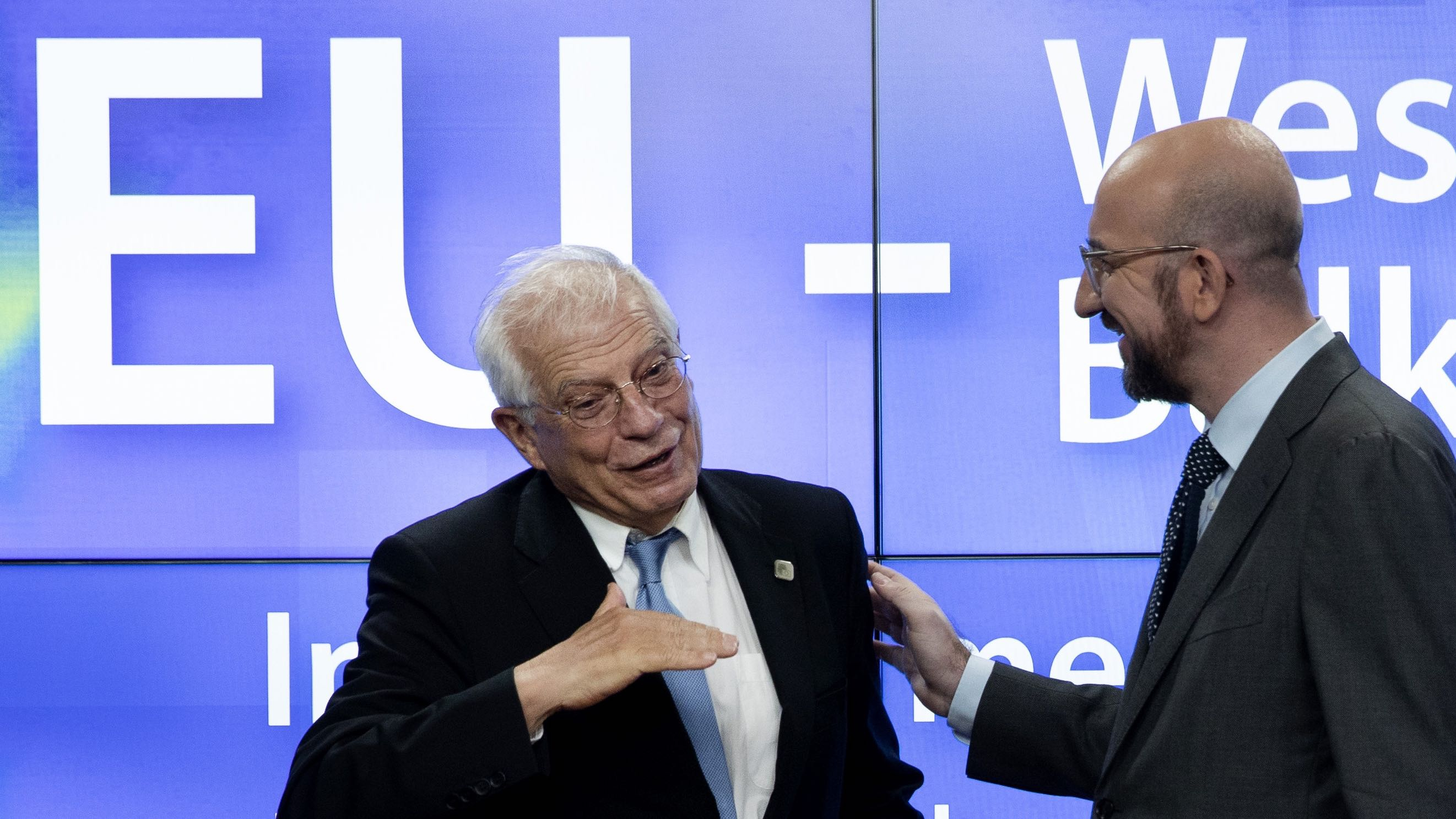European Union governments need to be willing to intervene in international crises or risk prolonging paralysis in their foreign policy, the bloc's top diplomat warned on Sunday as the Munich Security Conference (MSC) drew to a close.
"Europe has to develop an appetite for power," the EU's foreign policy chief Josep Borrell told the MSC, stressing that did not only mean military power. "We should be able to act... not every day making comments, expressing concern."

European Union foreign policy chief Josep Borrell, left, is greeted by European Council President Charles Michel as he arrives for an EU-Western Balkans meeting, Brussels, February 16, 2020. /AP Photo
European Union foreign policy chief Josep Borrell, left, is greeted by European Council President Charles Michel as he arrives for an EU-Western Balkans meeting, Brussels, February 16, 2020. /AP Photo
The EU is the world's largest trading bloc but it often fails to speak with one voice on foreign policy because its policy-making requires consensus among members.
EU governments are divided on issues from Libya to Venezuela and the bloc's foreign policy priorities have been undermined in part by U.S. President Donald Trump's "America First" policies.
Trump's decision to pull out of the 2015 Iran nuclear deal, as well as the Paris climate accord, his recognition of Jerusalem as Israel's capital before a final peace settlement and his criticism of NATO are at odds with European positions.
02:02

Speaking at the MSC on Saturday, French President Emmanuel Macron said the EU needed to wake up and match its budget with the scale of its ambitions, especially in future technologies.
"We are becoming a continent that doesn't believe in its future," Macron, who also called for closer dialogue with Russia, warned. "We don't invest in our future sufficiently... and politically it is the only way to reconcile with (our) middle classes."
With new leadership in Brussels, the EU has launched into a flurry of diplomacy since January, particularly on the Middle East.
But the bloc is still divided on how to react to Trump's peace proposal for the Palestinians and Israel. Efforts to revive a maritime mission off Libya to uphold a U.N. arms embargo have run into difficulties, diplomats say.
"When there is no unanimity (in the EU), the remaining majority have to act," Borrell said.
(With input from Reuters)